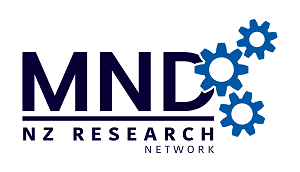
MND Research Network Newsletter Autumn 2021
Welcome to our first newsletter for 2021. I hope you had a restful and productive summer. 2020 was a year nobody had anticipated, and I am sure many of you were happy to see the back of! Despite starting this year in and out of lockdowns, overall, we have been lucky in comparison to other parts of the world to have the freedom to travel around our country, meet others and importantly continue with many of the scheduled research projects. Despite this, COVID-19 still had an impact on some research studies in New Zealand over the last 12 months. We live in a time of uncertainty with the risk of further lockdowns and working remotely. With this in mind we have decided to plan online networking opportunities this year and with the vaccine roll out underway hopefully we can organise in person events in the not-too-distant future.
As we move into 2021, we are excited about the growing number of MND research studies happening in New Zealand and plan to expand networking opportunities for our members. We have taken on board your feedback and we aim to increase communication and networking opportunities. We plan to publish three newsletters this year and are excited to announce a series of teleconferences for 2021, which are discussed in this publication.
In this newsletter you can read about:
- MND Research Network Survey results
- Teleconferences for 2021
- Research opportunities
- New Zealand MND Research
- Impact of COVID-19 on MND Research
Want to see something in our June newsletter? We would love to hear from you. Please send any articles or contributions to MNDresearch@auckland.ac.nz before 1st May.
Survey Results
Thank you to everyone who completed the survey sent out in November 2020. Results from some key questions are outlined in these graphs. Your feedback is really important to ensure the network continues to grow and be of benefit to its members. If you have any feedback that you would like to share, please contact the network, we would love to hear from yo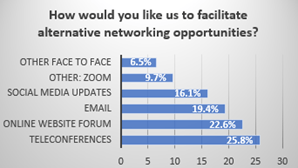 u.
u.
In lieu of a conference this year, we are planning a series of teleconferences for 2021. We hope to have more face-to-face opportunities in 2022 when the current pandemic is under control and there is more freedom to travel and have international speakers attend (fingers crossed!).
We will continue to keep the MND Network 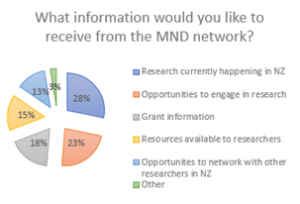 website up to date with research happening in NZ, information on grants / scholarships and resources.
website up to date with research happening in NZ, information on grants / scholarships and resources.
Email / Newsletter updates were the preferred option reported in the survey. To maintain regular communication without bombarding your inbox we aim to publish three newsletters this year.
Notifications of website updates, international MND news and research publications will be posted on Facebook and Twitter.
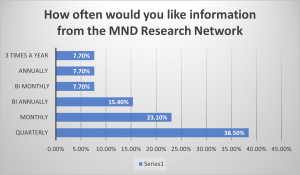
If you are on social media, I encourage you to “LIKE” our Facebook page “New Zealand Motor Neuron Disease Research Network” and follow us on Twitter “@NZMNDResearch” to keep regularly updated on what is happening.
Teleconferences 2021
We are delighted to announce a series of teleconferences for 2021. This is an exciting opportunity to hear first-hand about research happening in NZ and a chance to share ideas and network. The first one is scheduled for 14th April 2021 from 10am – midday followed by another one in August and November (dates TBC). Please share information about these teleconferences within your networks and to others who have an interest in MND. Click here to access the Zoom log in link or dial in +64 9 884 6780 Meeting ID: 959 5017 1727
In April we are delighted to announce the following presenters, who are involved in MND research in New Zealand:
Paige Thomas – PhD from the University of Canterbury Rose Centre for Stroke Recovery and Research
Paige and her team conducted a study on the impact of swallowing skill training protocol in patients with Amyotrophic Lateral Sclerosis (ALS). The therapy is a skill training protocol for swallowing through the Biofeedback in Strength and Skill Training (BiSSkiT) software. This protocol uses surface electromyography (sEMG) which measures muscle activity from the skins surface and displays it on a computer monitor. The research investigates prolonging functional swallowing and quality of life in patients with the Amyotrophic Lateral Sclerosis type of Motor Neuron Disease.
Dr Michal Boyd – Assoc. Professor & Nurse Practitioner; School of Nursing, University of Auckland
Assoc. Prof. Michal Boyd and her team have been conducting a research project investigating end-of-life neurodegenerative care. They have compared symptoms before death for those with cancer, dementia, or chronic illness (including MND) who have been living in long term care (LTC) facilities. The quality of end-of-life care in residential aged care is of concern for people with MND because, due to disability, many people with MND will require palliative and end of life care in long term care facilities.
Grace Chen – Centre for Public Health Research, Massey University
Grace and the team are conducting a New Zealand population-based control study to investigate associations between occupational and environmental exposures and MND. They have recently published a paper on the “Occupational Exposure to Electric Shocks and Extremely Low-Frequency Magnetic Fields and Motor Neurone Disease” and are analysing 11 other different exposures including lifestyle and environmental risk factors.
Research Opportunities
If you have an opportunity available in the field of MND research or are a student with an interest in MND please email MNDresearch@auckland.ac.nz Also, feel free to forward this to any of your colleagues who might be interested in placing a student into an MND-related research project or to students who are looking for their post graduate project. It would be great to channel talent into the field of MND.
Available grants and scholarships are published on the opportunities page of our website which was recently updated. If you know of opportunities not on the webpage please let us know.
Looking for research participants with Motor Neuron Disease?
The NZ MND Registry is continuing to grow with 190 active participants. The Registry holds participant data such as their contact details, date of birth and genetic information (if relevant) and key information about their disease using the ALSFRS questionnaire.
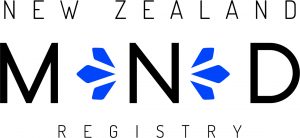
If you are looking for research participants or require anonymised data to inform a research project, please contact:
Dympna Mulroy – Curator
Phone: 0800 MND REGISTRY Email: mndregistry@adhb.govt.nz
Website: www.mnda.org.nz/registry/
New Zealand MND Research
Researcher Profiles
I would like to welcome Dr Vanessa Morris, Dr Deborah Mason, and Dr Deirdre Jansson who recently signed up to the MND research Network. If you are a researcher in MND and interested in profiling your research on the website, please let us know. You can view our featured profiles on www.mndresearch.auckland.ac.nz/research
Vanessa Morris is a protein biochemist and structural biologist with a strong interest in the role of protein aggregation in biology and disease. Vanessa completed her PhD in the University of Sydney and has worked in the Technical University of Munich, and University Health Network in Toronto. Vanessa researched factors that influence the aggregation of TDP43, as well as screening for drug compounds that can block aggregation. Vanessa is now based at the University of Canterbury in Christchurch and is interested in understanding intrinsic and extrinsic factors that influence TDP43 aggregation.
Deborah Mason is a Consultant Neurologist and Clinical Senior Lecturer University of Otago. Deborah has been involved in many clinical trials over the year and is currently leading the Biogen Tofersen 233AS303ALS trial in New Zealand.
Deidre Jansson is completing a postdoc at the Department of Psychiatry and Behavioural Science in the University of Washington. Deidre has a background in blood-brain barrier (BBB) biology, specifically BBB function and inflammation in the diseased brain. Deirdre is currently conducting a study in collaboration with Dr Catherine Morgan and Dr Emma Scotter using MRI to measure BBB dysfunction in MND patients compared to healthy controls.
Publications
A number of researchers in New Zealand have published articles about their research and collaborative studies with others. If you have published articles that you would like to share with the network, please let us know. Publications about MND/ALS from New Zealand researchers will be published on our website.
Improving clinical trial outcomes in amyotrophic lateral sclerosis. Kiernan, M. C., Vucic, S., Talbot, K., McDermott, C. J., Hardiman, O., Shefner, J. M., . . . Turner, M. R. (2021). Nature Reviews Neurology, 17(2), 104-118. https://doi.org/10.1038/s41582-020-00434-z.
ALS/FTD mutations in UBQLN2 impede autophagy by reducing autophagosome acidification through loss of function. Wu, J. J., Cai, A., Greenslade, J. E., Higgins, N. R., Fan, C., Le, N. T. T., . . . Monteiro, M. J. (2020). Proceedings of the National Academy of Sciences, 117(26), 15230-15241. https://doi.org/10.1073/pnas.1917371117
A Consensus Statement for the Management and Rehabilitation of Communication and Swallowing Function in the ICU: A Global Response to COVID-19. Freeman-Sanderson, A., Ward, E. C., Miles, A., de Pedro Netto, I., Duncan, S., Inamoto, Y., . . . Brodsky, M. B. (2020). Archives of Physical Medicine & Rehabilitation. https://doi.org/10.1016/j.apmr.2020.10.113
Shared Regulatory Pathways Reveal Novel Genetic Correlations Between Grip Strength and Neuromuscular Disorders. Gokuladhas, S., Schierding, W., Cameron-Smith, D., Wake, M., Scotter, E. L., & O’Sullivan, J. (2020). Frontiers in genetics, 11, 393. https://doi.org/10.3389/fgene.2020.00393
Associations of Occupational Exposures to Electric Shocks and Extremely Low-Frequency Magnetic Fields with Motor Neurone Disease. Chen, G. X., Mannetje, A. t., Douwes, J., Berg, L. H., Pearce, N., Kromhout, H., . . . McLean, D. J. (2020). American Journal of Epidemiology. 190(3), 393-402. https://doi.org/10.1093/aje/kwaa214
Voice Banking to Support People Who Use Speech-Generating Devices: New Zealand Voice Donors’ Perspectives. Westley, M., Sutherland, D., & Bunnell, H. T. (2019). Perspectives of the ASHA Special Interest Groups, 4(4), 593-600. https://doi.org/10.1044/2019_PERS-SIG2-2018-0011
Establishment and 12-month progress of the New Zealand Motor Neurone Disease Registry. Walker, K. L., Rodrigues, M.J., Watson, B., Reilly, C., Scotter, E.L., Brunton, H., . . Roxburgh, R.H.(2019). Journal of Clinical Neuroscience,60, 7-11 https://doi.org/10.1016/j.jocn.2018.11.034
Caregiver and special education staff perspectives of a commercial brain-computer interface as access technology: a qualitative study. Sarvnaz Taherian & T. Claire Davies (2018) Brain-Computer Interfaces, 5:2-3, 73-87
Covid – 19 Impact on Research
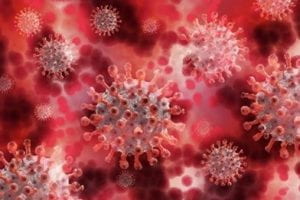 The COVID-19 pandemic saw an immediate closure of most clinical trial sites around the world. We spoke to some New Zealand researchers about the effects Covid-19 had on their studies. It is fair to say everyone was impacted to some level due to the lockdowns and restrictions imposed last year.
The COVID-19 pandemic saw an immediate closure of most clinical trial sites around the world. We spoke to some New Zealand researchers about the effects Covid-19 had on their studies. It is fair to say everyone was impacted to some level due to the lockdowns and restrictions imposed last year.
Some were lucky enough to have completed data collection before lockdown and it did not directly impact their study. For others it delayed completion of their study due to the lack of remote access to data. Participant testing done in labs were delayed and some studies had to change their method of gathering data. Telehealth was useful for some researchers to continue their assessments while others had to get special permissions to conduct procedures with enhanced PPE and precautions at level 3. Unfortunately, for one group with international sites the negative impact COVID-19 has had commercially meant they had to reduce the size of their team and put a lot of research on hold. These challenges led to a series of adaptations so people could participate remotely and, in the future may allow researchers to offer participation in clinical trials / research studies to people much more widespread than previous practice would have allowed.
The impact of COVID-19 on research in MND was discussed at the 31st International Research Symposium which was held online in December. MND Research Blog is publishing three blog articles discussing lessons learnt from COVID-19 and the impact on clinical trials. These can be viewed online https://mndresearch.blog/ I hope the recent short-term lockdowns in NZ has not impacted too much on everyone conducting research studies.
I encourage you to share this newsletter and spread word about our teleconferences within your networks.
Thank you so much for your support and we look forward to a great 2021 disseminating and facilitating NZ MND Research and promoting research opportunities.
Kia kaha
Dympna Mulroy
NZ MND Research Network Manager
